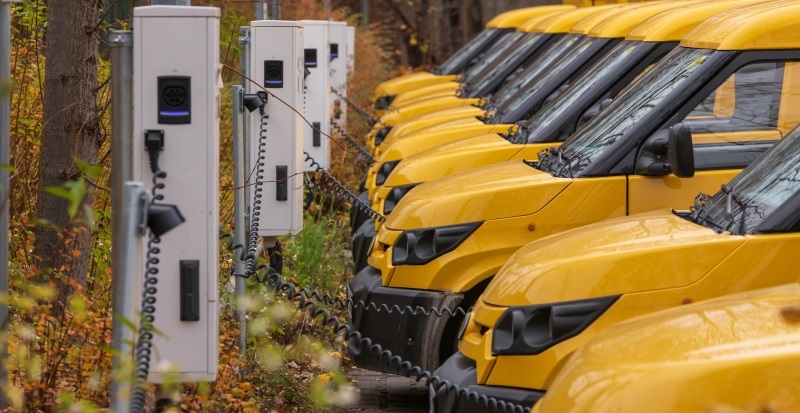
On April 10, French MPs met in the Sustainable Development Committee to discuss the bill proposed by parliamentarian Damien Adam to promote the transition to greener corporate fleets.
In this regard, the companies would be obliged to incorporate 20 per cent electric vehicles (EVs) by 2024, 40 per cent by 2026, 65 per cent by 2028, and 95 per cent by 2030.
On this basis, Avere-France petitions to continue with the proposal without reducing the ambitions of companies.
“A too significant reduction of the objectives could compromise the European ambition to end all fleet renewals with combustion vehicles within ten years,” they state in the declaration.
According to the Transport & Environment (T&E), two out of three corporations did not meet the requirement through the purchase or lease of their own units.
Furthermore, most of them did not submit reports.
It is worth noting that the business sector constitutes over 50 per cent of annual registrations, playing a crucial role as a primary supplier of new automobiles.
The number of registrations of fully electric private cars and light utility vehicles (LUVs) increased by 71.61 per cent, reaching a market share of 11.07 per cent at the end of 2023 (a 3.5 increase compared to the previous year).
Additionally, units purchased by companies are typically resold after approximately four years of use, compared to the eleven years typically maintained by private individuals, contributing to the availability of second-hand cars in the market.
In 2023, electrified cars, including electric and plug-in hybrids, accounted for approximately four per cent of the second-hand market, amounting to around 175,000 units, marking a historic milestone.
That is why the organization argues that fleet electrification plays an important role in making EVs more accessible to a greater number of people.
In the publication, Avere-France comments: “Taking into account the triple observation of the end of the sale of fuel vehicles in 2035, the social role that company fleets can play as suppliers of vehicles in the second-hand market and mixed feedback In terms of compliance with obligations, the legislative innovations permitted by Damien Adam’s bill seem essential“.
How to incentivize fleet transition? Below, Mobility Portal Europe shares the details of Damien Adam’s legislative proposal.
The proposal aims to establish a clear trajectory for the renewal of corporate fleets towards more sustainable cars and to increase transparency and compliance with corporate environmental obligations.
The first article sets intermediate thresholds for companies to integrate an increasingly higher proportion of EVs into their fleets, as follows: 20 per cent by 2024, 40 per cent by 2026, 65 per cent by 2028, and 95 per cent by 2030.
Furthermore, it emphasizes the exclusion of plug-in hybrids from these percentages, aiming to achieve the goal of 100 per cent zero-emission car sales by 2035.
The second article proposes fines of up to 10,000 euros (20,000 in case of recurrence) for firms that fail to meet ecological quotas, to strengthen transparency and oversight methods.
Finally, the last two points establish an appropriate penalty system for companies that fail to meet the objectives defined in the first article, including a gradual fine of up to one per cent of their total revenue, as well as a prohibition from participating in public contracts.
“In recent years, the European Union has demonstrated its commitment to ecological transition and sustainable development. With the Green Deal, all Member States unite around a common interest: reducing greenhouse gas emissions and achieving carbon neutrality,” Adam declared in a plenary session.
“It is now up to us to transpose these directives into our national legislation. I intervened in the Chamber as a rapporteur on the ecological transition part of this bill,” he adds.








